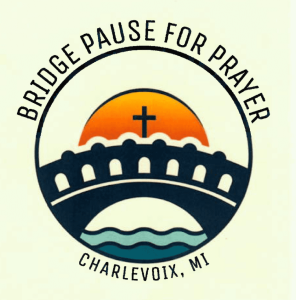A few years back I remember a friend of mine inviting me to watch an episode of Downton Abbey.
I had heard about it a little bit and knew that it was one of those “all the rage” shows. I am usually not one to watch much TV, but I do like history and find English history especially fascinating. To start with, I just love hearing people speak with a British accent. What caught my attention in Downton Abbey was the thought, “did they really live like that?” Everything had to be so proper. Every article in the home had its proper place, everyone had their proper rank, every time of day had its proper dress, there were proper manners and etiquette for everything. After watching the first episode of the second season, I was told I should catch up and watch the first season. So I did, then after that I watched the rest of the seasons in succession, and then Downton Abbey the movie.
One thing about getting into a show like that, is that you really get to know the characters. Some you come to love, some you never are quite sure about and some you wish would just go away. One of my favorites was Mr. Carson. He stood so firmly and steadfastly in his role as the Butler, and represented tradition and principle. He was always very skeptical of any changes and new inventions, which caused many comical conversations. He was the one to keep the whole household living up to the standards of the highest in British society and held the keys to whole house. He had great authority and took his service to the Crawley family very seriously.
In the readings for this weekend we hear about the master of the palace in the book of Isaiah. The prophet comes to Shebna, the master of the palace and tells him, “Thus says the Lord to Shebna, the master of the palace: ‘I will thrust you from your office and pull you down from your station. On that day I will summon my servant Eliakim, son of Hilkiah; I will cloth him with your robe, and gird him with your sash, and give over to him your authority. He shall be a father to the inhabitants of Jerusalem, and to the house of Judah. I will place the key of the House of David on Eliakim’s shoulder; when he opens, no one shall shut, when he shuts no one shall open. I will fix him like a peg in a sure spot, to be a place of honor for his family” (Isaiah 22:19-23).
Most kingdoms and kings would have had someone who was in charge of the palace and would have kept things in order. This person had the authority over all the others in the household and his word would have been final in daily operations. The symbol of the key that is given to Eliakim is a symbol of teaching authority. The kingdom of Israel and in the line of David, kings had these men who, much like Carson in Downton Abbey, had the authority to teach the servants as well as to run the palace in the name of the king.
We see a very similar parallel passage in the Gospel where Jesus gives very similar authority to Simon Peter. In this passage Jesus has taken His disciples to Caesarea Philippi where He asks His disciples “Who do you say that I am?” (Matthew 16:13). Peter answered Him saying, “You are the Christ, the Son of the living God” (Matthew 16:16). Jesus then goes on to say to Peter,
“Blessed are you, Simon son of Jonah. For flesh and blood has not revealed this to you, but my heavenly Father. And so I say to you, you are Peter, and upon this rock I will build my church, and the gates of the netherworld shall not prevail against it. I will give you the keys to the kingdom of heaven; whatever you bind on earth shall be bound in heaven; and whatever you loose on earth shall be loosed in heaven” (Matthew 16:17-19).
As Jesus is in the line of the Davidic kings and comes to establish a heavenly kingdom, He in a sense also establishes a master of the palace who has the keys to unlocking and locking all the doors. He is given a similar authority to teach and to govern in this new kingdom of His church that Christ came to establish. Peter received this gift because he responded with Christ’s question with the truth that was revealed to Him by God the Father. This question of Jesus then becomes very significant and its important that we see that there is a correct answer. Who do you say that Jesus is? There are not 7.2 billion different options. In this passage Jesus is accepting Peter’s claim that He is the Christ, that He is the anointed one of God, the Son of God who is the promised Messiah. He it is who comes in the name of His Father and establishes the Kingdom of God on earth through His church.
In the Catholic interpretation we believe that this church, now governed by the successors of Peter, continues to faithfully proclaim the kingdom that Jesus established and brings to the world the graces of His saving mission. Understanding that Jesus is who He says He is leads us to understand the fullness of what he came to do. From there we are able to embrace the saving mission that He established and through the church receive the graces that he wants us to receive.
So let us answer that question that Jesus asks all of us. “Who do you say that I am?” Is He who He says is in your life. I pray that we might all be able to receive Him as He is, so that His mission of salvation might break through into our hearts.

